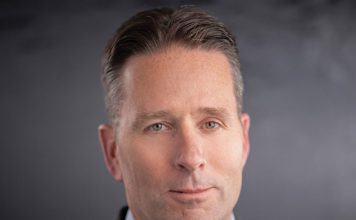Trustees say sessions touched on Day of Silence
Gilroy – Two board members say talks about the Day of Silence have taken place during closed session, but the board president claims no one veered away from the agendized topics, only discussing the protest in relation to personnel or teacher negotiations.
If the Gilroy Unified School District board has discussed non-personnel issues related to the Day of Silence behind closed doors, as interviews with Trustees Jim Rogers and Dave McRae revealed, it may have violated the open meeting law.
“It sounds like they are trying to avoid their legal obligations under the Brown Act,” said California First Amendment Coalition Executive Director Peter Scheer.
Under the Brown Act, public officials are permitted to discuss certain issues, such as personnel, and labor and property negotiations, but they must be placed on the agenda and any action taken must be reported in open session. And it’s taboo to debate policy issues such as the Day of Silence.
“The whole point of the Brown Act is to force government to make public policy in front of the public …” Scheer said. “When it comes to broad-based decisions or just discussions of policy issues, to the maximum extent possible, those should be discussed in public.”
Although Trustee David McRae said the closed session talks had to do with negotiations and teacher contracts, he did assert that the issue of academic freedom and other subjects surrounding the controversial day when participants remain silent to protest the discrimination of gays, did come up.
“I think a lot of times we have quick discussions that start to branch out and touch a lot of areas and then that’s set aside,” McRae said. “So, yes, it’s been consistently discussed. I would say once every month or two.”
But President Pat Midtgaard said the board members did not shift from the agendized topics and that their Day of Silence talks during closed session were legitimate.
“The only part that we’ve talked about is personnel,” Midtgaard said. “We’re pretty restricted about what we can discuss in closed session.”
Midtgaard, who requested a Day of Silence report from Superintendent Edwin Diaz, said the district and the board have “taken steps this year,” of which the community is not aware. Those details will be included in Diaz’s report, she said.
The board has updated and revised policies related to the Day of Silence, such as student conduct, sexual harassment, freedom of speech and classroom interruptions, but those were all discussed in open session, Midtgaard said.
When asked why the board failed to schedule a public discussion about the controversy, Midtgaard said it wasn’t necessary because the issue didn’t come up until recently and the agendas were packed.
This month, board members and district officials began deflecting public criticism for not taking action by claiming that they’ve been hard at work on the Day of Silence. On Monday, Diaz said, “contrary to public opinion, we’ve been working on this for a year.”
Trustee Jim Rogers said the board is careful about closed session conduct, usually only discussing personnel matters, land or labor negotiations and that Day of Silence talks are only appropriate for open meetings. Still, Rogers said the board has brought it up to make sure the public knows it’s still on their minds.
“Only that we need to address both the newspaper and the public’s questions and we need to make sure ahead of time there’s a PR (public relations) type report that says what has been done,” he said.
The idea of releasing a report to the public was discussed in closed session in February, after the Dispatch published an article on the subject, Rogers said.
“We wanted to make sure that the public is informed,” he said. “There was no vote, just that.”
Rogers said the board didn’t discuss anything further about the protest or address anything new. The members just wanted to give Diaz the directive to assemble the report.
Still, even that seemingly innocent conversation would be a violation of the Brown Act. According to Scheer, anything exiting the realm of negotiations or dealing with a specific teachers’ situation is outlawed.
If the board is discussing the issue at a “fairly general level,” it must take place during the public sector, he said.













